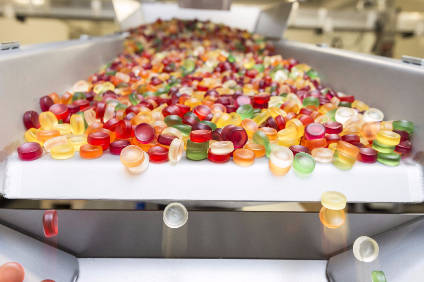
Privately-owned confectionery maker Haribo is investing in one of its two UK facilities in West Yorkshire.
The Germany-headquartered business is ploughing GBP22m (US$30.9m) into its plant in the town of Castleford in north England, close to its other site in Pontefract, which was the subject of employee consultations last year amid proposed changes to the factory. Those talks are still ongoing, a spokesperson confirmed to Just Food.
Haribo said the investment in the Castleford site will add production capacity to the 30,000 tonnes of confectionery produced each year and greater efficiencies through “enhancing” technologies. It will also enable the expansion of reduced-sugar sweets following the 2018 launch of Fruitilicious, Haribo’s first in the category.
Jon Hughes, the managing director for Haribo in the UK, said in a statement: “As we continue to face tough challenges following the ongoing impact of Covid-19, we are showing our resilience and commitment to world-class production in an increasingly competitive market. Investing GBP22m into our already world-class manufacturing facility will give us greater opportunity to produce the variety of sweets that we know bring childlike happiness to our customers.”
Since the roll-out of Fruitilicious, Haribo has also brought out Fruitifest, for which the sugar content has been cut by 30%. The company has also reformulated its Haribo Jelly Babies range, which now has 25% “less sugar than competitor products”.
Meanwhile, Haribo provided an update on the ongoing negotiations at its Pontefract plant in West Yorkshire, which the company said “remains a working facility”.

US Tariffs are shifting - will you react or anticipate?
Don’t let policy changes catch you off guard. Stay proactive with real-time data and expert analysis.
By GlobalDataThe spokesperson said: “We are continuing to consult with all our colleagues and have successfully redeployed a number of them into other areas of the business. Seeking alternative opportunities as opposed to potential redundancies remains a priority for us.
“In the event that redundancy is unavoidable, we are committed to compensating colleagues by exceeding our statutory obligations and paying enhanced redundancy terms. While consultations are ongoing, no further comment will be made.”



